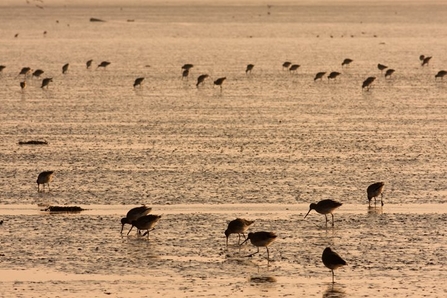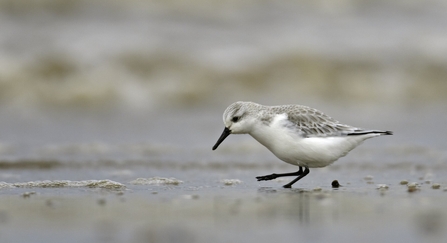Outlandish plans to redevelop the estuary to generate electricity, at a cost per MWh of almost double any comparable low carbon energy source, would fundamentally alter one of the UK's most important wetlands.
Alongside the RSPB, Lincolnshire Wildlife Trust (LWT), the Wildfowl and Wetlands Trust (WWT) and Wild Ken Hill Estate, we are urging government and developers to re-think this proposal to avoid catastrophic effects on nature and wildlife.
The Wash is the UK's most important estuary for wild birds, home to England's largest common seal colony, and an important fishery. A tidal barrage would fundamentally alter the nature of the intertidal habitats on which this wildlife depends.
Construction of a barrier across the mouth of The Wash would displace the flow of tidal water in and out of the estuary, raising concerns this could lead to greater - and more frequent – flooding, and cause significant coastal erosion. Similar projects, including a tidal barrier at Oosterschelde in the Netherlands, resulted in flooding further along the coast.
The plans are fronted by businessman James Sutcliffe, CEO of Centre Port Holdings Ltd. A deep-water port has also been included in the plans.



